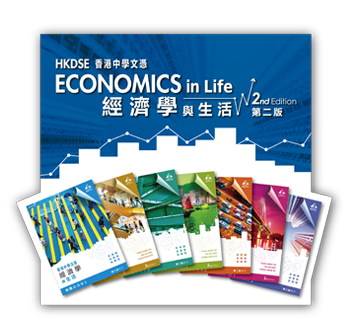經濟科
Course Introduction
Curriculum Aims
- develop an interest in exploring human behavior and social issues through an economic perspective;
- understand the world in which they live through mastery of basic economic knowledge;
- enhance their general intellectual capacity for life-long learning, through developing their capacities in economic analysis, so that they possess the skills necessary for reasoning about issues and making rational choices; and
- participate as informed and responsible citizens in the decision-making processes of a modern democratic society.
Curriculum Framework
This curriculum comprises two parts.
- The Compulsory Part covers microeconomics and macroeconomics.
- The Elective Part, which constitutes 10% of curriculum time, comprises two parts from which students choose one. The Elective Part includes elements that call for extended analysis and broader economic knowledge. It provides an opportunity for students to choose an area of study related to their aptitudes and interests.
Assessment Mode
Public Assessment
|
|
Weighting |
|
|
Paper 1 |
Multiple-choice questions will be set on the compulsory part of the curriculum. All questions are compulsory. |
30% |
|
Paper 2 |
Section A and B: Short questions, Structured/essay-type/data response questions will be set on the compulsory part of the curriculum. All questions are compulsory. |
59% |
|
Section C: Structured/essay-type questions will be set on the elective parts of the curriculum. Candidates are to attempt the questions from one of the two elective parts. |
11% |
|
Pathways to Further Education and Career Opportunities
- Studying economics can help students grasp the basic economic concepts and skills, train them to make judgments using rational analysis, and lay a solid foundation for future academic advancement and employment, such as:
- Studying subjects such as economics, business administration, finance, marketing, or public administration at higher education institutions.
- Engaging in industries such as economic research, finance, market analysis, supply chain management, and economic education.
textbook




